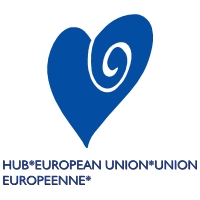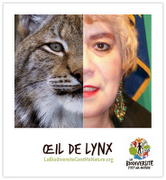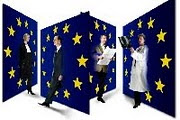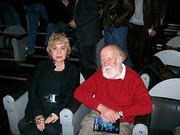***Some have attributed the continued outspokenness of climate-change skeptics to the financial backing of energy corporations, the zealotry of right-wing media figures and the failure of many to understand science.
Naomi Oreskes, a professor of history and science studies at the University of California, San Diego, offered another theory in a lecture last week at the University of Rhode Island.
Oreskes said much of the skepticism originated years ago with a group of non-climate scientists who exploited scientific uncertainty — not for money or for true intellectual reasons, but for ideological reasons. Many skeptics, Oreskes said, simply oppose more government regulation and intrusion in the free market system.
Oreskes said the skeptics similarly attacked the science around acid rain, the ozone hole, secondhand cigarette smoke, global warming and the pesticide DDT.
“In every case, they denied the severity of the problem and said the science was uncertain,” Oreskes said. “It was always the same argument. They always used the tobacco strategy and said it would be wrong for the government to interfere with the marketplace. It was all about using this play from the tobacco playbook.”
Oreskes, who spoke on Tuesday, was the second of four speakers scheduled to take part in the spring 2010 Vetlesen Lecture Series called “People and Planet 2010 — Global Environmental Change.”
She attracted a great deal of criticism from climate change deniers in 2004 when she wrote an essay published in the journal Science that examined nearly 1,000 scientific papers on climate change and found none dissented with the theories that it was occurring and it was caused by human activities.
This spring, she said, she plans to publish “Merchants of Doubt: How a Handful of Scientists Obscured the Truth on Issues from Tobacco Smoke to Global Warming” with coauthor Erik Conway, a science historian at the Jet Propulsion Laboratory.
Concerns about carbon dioxide’s role in warming the planet are not new, Oreskes said, and they have generally been conservative rather than hysterical, as skeptics claim.
Oreskes’ book traces organized skepticism back to three renowned physicists, Frederick Seitz, Robert Jastrow and William Nierenberg, all now deceased.
They were founders of the conservative George C. Marshall Institute and all were defenders of Ronald Reagan’s strategic defense (or Star Wars) initiative. When the Cold War ended, Oreskes said they turned their attention to what they considered environmental extremism over such issues as acid rain and secondhand smoke.
Seitz was a consultant to the R.J. Reynolds Tobacco Company.
Even today, a page on the Marshall Web site concerning climate-change science says: “There remains considerable uncertainty as to how much the climate has varied regionally and globally on the decades-to-centuries timescale, or what caused those changes. Yet we need to know how natural climate fluctuations are caused in order to determine to what extent human activities have affected the climate system.”
People fall for such arguments, Oreskes said, because when some raise questions about science, that raises doubts. Uncertainties favor the status quo.
“In global warming, the views of a handful of non-climate experts get juxtaposed with those of thousands of climate scientists,” Oreskes said. And all too often, she said, their claims fail to pass the test of peer review by other scientists.
Many journalists make matters worse by trying to give equal time to both sides, she said. “Journalists have been fooled by thinking smart people are smart about everything. We need to pay attention to who these experts are, what their credentials are and where their financing comes from.”
Oreskes said modern science has sent men to the moon, cured diseases and predicted tsunamis after the earthquake in Chile. Why do people believe science can’t get it right when it comes to climate change?
Talks by Oreskes can be seen on YouTube.com
The next presentation in the lecture series will be by biologist Boris Worm on March 16 at 7:30 p.m. at Edwards Hall on URI’s Kingston campus. His talk is titled: Saving the Blue Planet: Patterns, Trends and Prospects for Marine Biodiversity.
SOUTH KINGSTOWN
March 7, 2010
Projo
Bien à vous,
Morgane BRAVO
jeudi 18 mars 2010
Inscription à :
Publier les commentaires (Atom)















Aucun commentaire:
Enregistrer un commentaire